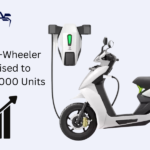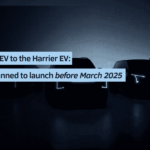
Mahindra and Volkswagen Join Forces for Electric Future
The giant automobile manufacturer, Volkswagen, wants to build its presence in India. Its Indian subsidiary, Škoda Auto Volkswagen India Private Limited, a German-based company, is close to entering into a 50:50 joint venture with the Mahindra Group.
The partnership will help accelerate the creation of electric vehicles in India. The JV will focus on creating innovative SUV EV platforms for both domestic and international markets. Additionally, the collaboration extends to the joint development of traditional internal combustion engine vehicles. Furthermore, marking a proof that the companies are committed to diversified product offerings.
Geopolitical rivalry between the US and China is persuading Volkswagen to cement its presence in India. Moreover, the fast-growing economy and massive market of India provide ample opportunities for the auto company to minimize risks and ensure growth. The company has an excellent track record of joint ventures with local players, especially in China. Where it has partnered with FAW and Saic Motor for producing vehicles meant for the domestic Chinese market.
Volkswagen and Mahindra join forces to electrify India.
Volkswagen, a global automotive giant, is making significant strides in the Indian market. Operating two auto plants in Aurangabad and Pune with a combined capacity of 200,000 units annually. Moreover, the company sold only 100,000 units in India last year, representing less than 2% of its global deliveries.
This news comes on the heels of a strategic partnership between Volkswagen Group and Mahindra Group. The collaboration aims to expedite Mahindra’s entry into the Indian electric vehicle (EV) market.
Mahindra will integrate Volkswagen’s modular electric drive matrix (MEB) technology into its INGLO electric platform. This strategic move will enable Mahindra to leverage Volkswagen’s advanced EV technology. Moreover, accelerating the development and launch of its own electric vehicles.
However, the partnership between Volkswagen and Mahindra marks a significant step forward in the Indian EV landscape. The two companies are poised to drive innovation, promote sustainable mobility, and contribute to India’s transition to a greener future.
Volkswagen Powers Mahindra’s Electric Future
Volkswagen will be a key enabler in Mahindra’s electric journey. German carmaker will provide MEB technology to Mahindra that, for most people, is known as “skateboards” . Which comprise the chassis with an integrated battery pack that provides a prefabricated solution.
In using VW’s MEB technology, Mahindra will drastically cut production costs. According to VW, supplying pre-assembled skateboard layouts will help Mahindra save up to 50% over getting the components and assembling them in-house. All these put Mahindra well on track toward pacing up its EV development and introducing some exciting electric vehicles.
Volkswagen and Mahindra to Produce Massive Quantities of EVs
It locks in Volkswagen and Mahindra into a strategic partnership that brings considerable production volumes of electric vehicles to India. The agreement, likely for a period running into years, will have Volkswagen supply Mahindra with as much as 50 GWh of battery capacity.
Assuming an average pack size of 50 kWh for the new line of EVs from Mahindra, this agreement would correspond to the delivery of about a million vehicles. However, this ambitious target underlines the commitment of the two companies to lead the wider adoption of electric vehicles in India, establishing themselves in the global EV market in the process.
The partnership between Volkswagen and Mahindra is a game-changer in the Indian electric vehicle market. In 2023, less than 100,000 passenger EVs were sold in India, with this representing an extremely big bet on the segment by Mahindra.
Mahindra will unveil five all-electric SUVs based on its INGLO platform by December 2024. Moreover, currently enjoying a market share of 6% in the passenger EV vertical, the company now eyes a chunk of the highly lucrative SUV EV market.
Achieving the former would indeed mean a direct battle with entrenched players such as MG and Tata Motors, which together corner over 75% of the market. However, backed by the partnership with Volkswagen and Mahindra’s ambitious product roadmap, it positions the company to make a strong mark in India’s evolving EV landscape.









